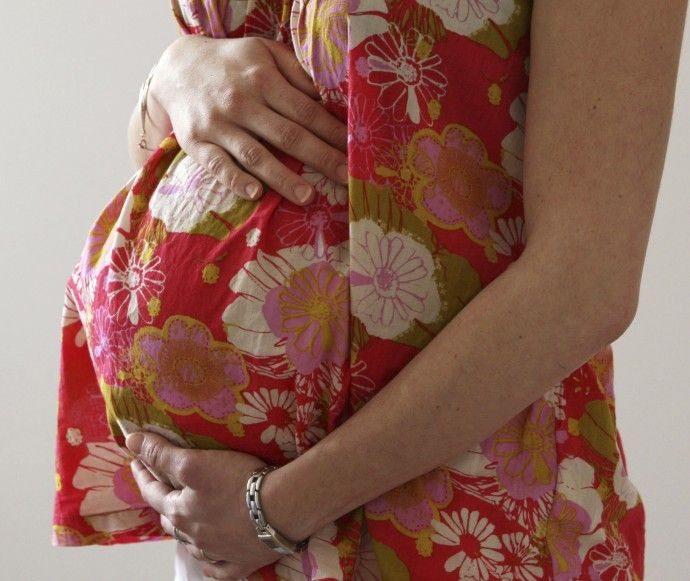Paid Leave for New Mothers Sharply Divided by Education: U.S. Census

While more than 50 percent of new mothers who gave birth between 2006 and 2008 received paid leave, a new analysis from the U.S. Census Bureau found that less educated women are substantially less likely to receive paid time off following the birth of their first child.
In all, 51 percent of working women who had their first child in that two-year period were granted paid leave, consisting of either maternity leave, sick days or vacation days, compared with 42 percent between 1996 and 2000. However, although more women than ever had access to paid time off, it varied drastically depending on a woman's educational status -- lower educated mothers are almost four times less likely than college graduates to receive paid maternity benefits, the widest gap in the past 50 years.
Generally, older women with full-time jobs and a college degree were the most likely to take paid maternity leave. Two-thirds of prospective mothers with at least a bachelor's degree were able to use some form of paid leave following childbirth, compared to just 18 percent of women with less than a high school education.
Although the disparity can be expected -- after all, college graduates are more likely to have the kind of employment that provide such benefits -- it can be a burden for working families who often cannot afford to lose a paycheck and still pay the bills. Moreover, half of all first-time mothers without a college education quit their jobs during their pregnancy, compared to approximately 13 percent with a degree, indicating it is more difficult for less-educated women to hold onto employment leading up to childbirth, or have positions held afterward.
Leaving A Job: A Leading Cause of Poverty Spells
Kristin Rowe-Finkbeiner, the executive director of the advocacy group MomsRising.org, told the International Business Times the proportion of first-time mothers who leave their jobs is a particular concern since having a child is one of the leading causes of poverty spells -- that is, when household income drops below what is needed for basic living expenses.
We hear from people every day struggling with the most heartbreaking stories, Rowe-Finkbeiner said, describing how many families are unable to meet their basic expenses when a new mother leaves her job and does not receive paid leave. Today, many couples need a women's paycheck to support their families.
In the U.S., having a baby is responsible for 25 percent of all poverty spells, said Rowe-Finkbeiner, who said it is connected to the fact that paid leave is not legally guaranteed to women.
In U.S., 42 Percent of Moms Received Unpaid Maternity Leave, 2006-2008
While 51 percent of women received a form of paid leave between 2006 and 2008, 42 percent received unpaid maternity leave. Under the Federal Family and Medical Leave Act of 1993, employers are legally bound to provide job-protected unpaid leave to workers for medical and reasons for up to 12 weeks. However, the federal law only applies to companies with 50 or more employees, although some states have amended it to lower that threshold.
A 2000 survey from the Department of Labor found that almost 54 percent of individuals who qualified for unpaid leave under FMLA worried they would not be able to meet their financial obligations if they took time off. About 27 percent said they worried they would lose their job if they took unpaid leave, while another 26 percent said they feared taking unpaid leave would hinder their chances for career advancement.
Out of 145 countries, the National Partnership for Women and Families reports that the U.S. has the distinction of joining Papa New Guinea, Liberia and Swaziland as the only nations that do not offer paid leave to new mothers.
Wants Leave to Apply to All Workers
Rowe-Finkbeiner said MomsRising is one of many organizations that have lobbied for a national policy enacting paid family leave assistance to all workers, no matter their position or income level.
This isn't only feasible, it's necessary, she said, adding that the policy would not come at an additional cost to private employers. Instead, she said funds would ideally come from directly from the government, similar to disability insurance, and would be employee-funded.
Plus, offering paid maternity leave could have more than economic benefits. Besides limiting poverty spells -- which some suggest could also reduce levels of income inequality among middle class families -- providing families with paid leave could also have a positive effect on the health of mothers and their newborn children.
U.S. Trails Europe
The U.S. Office of Personnel Management reports that in European nations, many of which offer generous paid leave benefits for both new mothers and fathers, paid leave has been shown to reduce infant mortality rates. That may be a particular reason for considering paid leave benefits in the U.S., which the World Health Organization reports has one of the highest rates of infant mortality in the developed world.
Rowe-Finkbeiner said paid maternity leave has also been shown to reduce cases of post-partum depression, increase access to post-natal care, and boost newborn immunization rates.
Some individual states have passed laws relating to paid family leave. In California, workers can receive 50 percent pay for six weeks from a fund that employees contribute to. Hawaii, New Jersey, New York and Rhode Island also have also mandated that employers set up temporary disability programs that pay a woman's employee benefits if a physician determines her pregnancy is a disability.
© Copyright IBTimes 2025. All rights reserved.





















